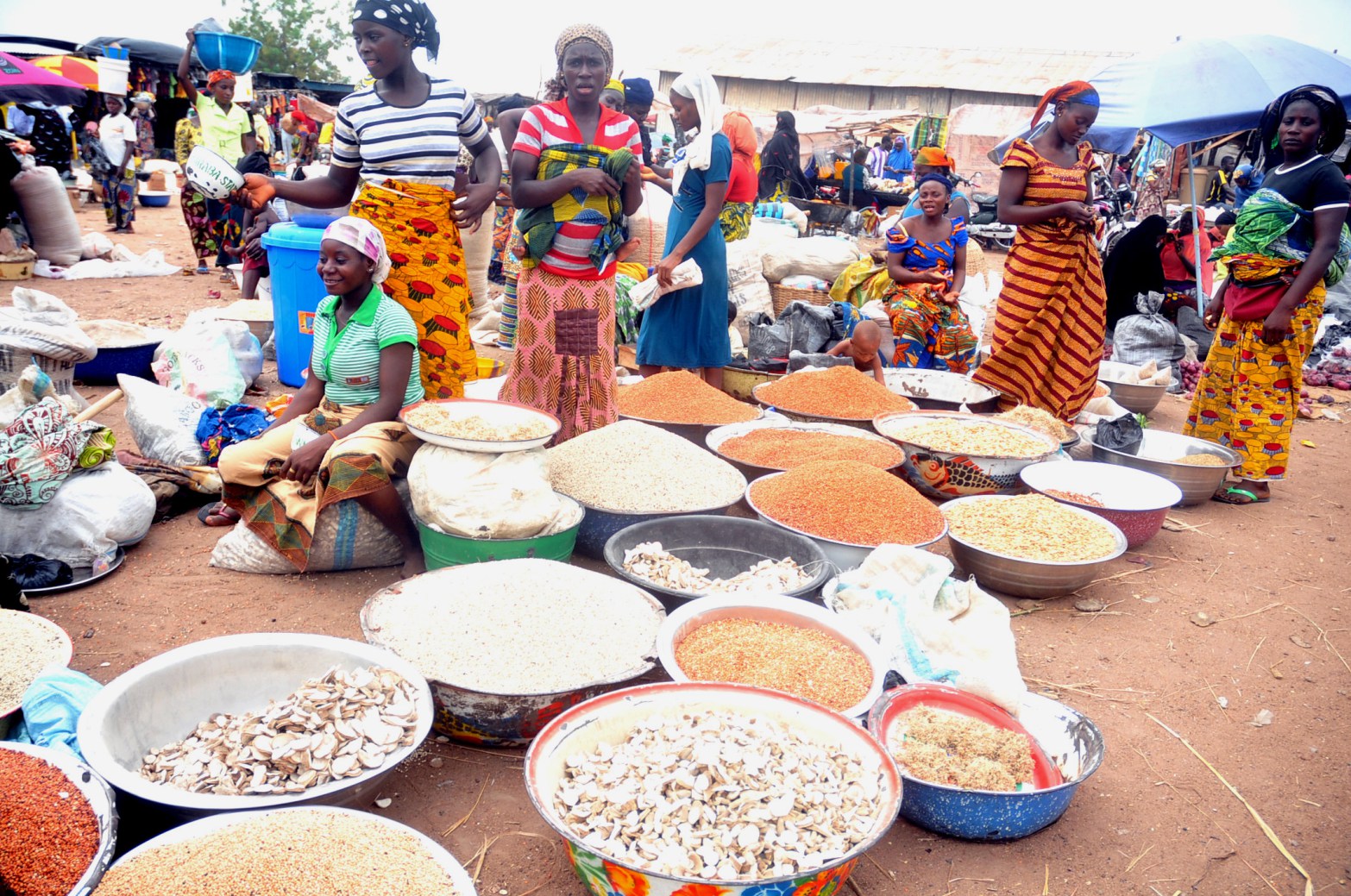Nigerians’ woes continue as food prices skyrocket
There is no end in sight to the current economic situation Nigerians are facing as the National Bureau of Statistics (NBS) reported that the country’s food inflation increased to 35.41 per cent in January. According to the NBS, the rise is 11.10 per cent points higher compared to the rate recorded in January 2023 (24.32 […]

FILE PHOTO
There is no end in sight to the current economic situation Nigerians are facing as the National Bureau of Statistics (NBS) reported that the country’s food inflation increased to 35.41 per cent in January.
According to the NBS, the rise is 11.10 per cent points higher compared to the rate recorded in January 2023 (24.32 percent).
It identified increases in prices of bread and cereals, potatoes, yam and other tubers, oil and fat, fish, meat, fruit, coffee, tea, and cocoa as a major component that drove the hike.
On a month-on-month increase, it said the figure was 3.21 per cent, a 0.49 per cent higher compared to the rate recorded in December 2023 (2.72 per cent).
The increase is despite January traditionally associated with low spending after increased spending in February.
Inflation rises to 29.90 per cent
The report also stated that Nigeria’s headline rate of inflation rose to 29.90 per cent in the month of January.
It said the inflation rate showed an increase of 0.98 per cent points when compared to the (28.92 per cent) in December 2023.
Recall that the inflation figure for December 2023 broke a 20-year record high.
For “All items less farm produce and energy” or Core inflation, which excludes the prices of volatile agricultural produce and energy, it said the increase was 23.59 per cent on a year-on-year basis; up by 4.71 per cent when compared to the 18.88 per cent recorded in January 2023.
It said, “The highest increases were recorded in prices of passenger transport by road, medical services, actual and imputed rentals for housing, pharmaceutical products, accommodation service, and passenger transport by air, etc.”
State profile
The report said All Items inflation rate on a year-on-year basis was highest in Kogi (35.79 per cent), Oyo (34.58 per cent), Akwa Ibom (33.16 per cent), while Borno (22.57 per cent), Taraba (24.83 per cent) and Benue (26.64 per cent) recorded the slowest rise in headline rate of inflation on a year-on-year basis.
“On a month-on-month basis, however, January 2024 recorded the highest increases in Ondo (3.79 per cent), Osun (3.77 per cent), Jigawa (3.58 per cent), while Bayelsa (0.45 per cent), Yobe (1.10 per cent) and Ogun (1.35 per cent) recorded the slowest rise on month-on-month inflation,” the NBS said.
For food inflation in January 2024, Kogi had the highest with 44.18 per cent, Kwara (40.87 per cent), and Rivers (40.08 per cent), while Bauchi (28.83 per cent), Adamawa (29.80 per cent) and Kano (30.08 per cent) recorded the slowest rise in food inflation on year-on-year basis.
“On a month-on -month basis, however, January 2024 food inflation was highest in Ondo (4.69 per cent), Osun (4.59 per cent), and Edo (4.58 per cent), while Bayelsa (0.24 per cent), Yobe (0.97 per cent) and Ogun (1.44 per cent) recorded the slowest rise in food inflation on a month-on-month basis.”
Insecurity causing high food prices
A senior economist at SPM Professionals, Paul Alaje, said the increase in food price is due to farmers not being able to access their farmlands due to insecurity and called on the federal government to look for ways to ensure farms are safe for cultivation.
“The approach to solving it will be the supply side approach; when you look at the food prices, there is a general shortage, which will create food crises this year.
He said the way out is to improve supply from agriculture and agro-allied sectors through government policies on farm hubs in each local government, adding that it won’t be a loose policy but deliberate to encourage people to farm.
